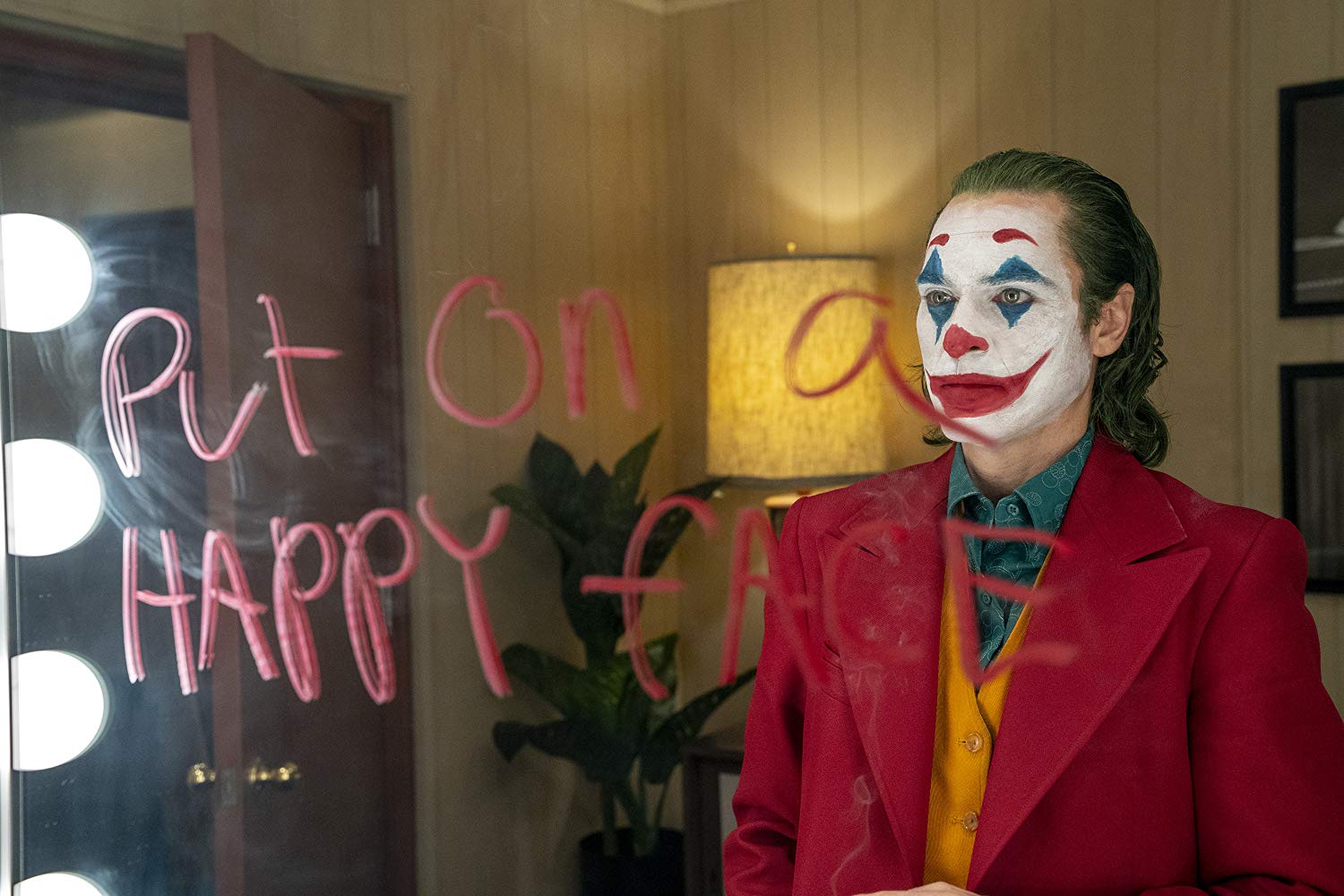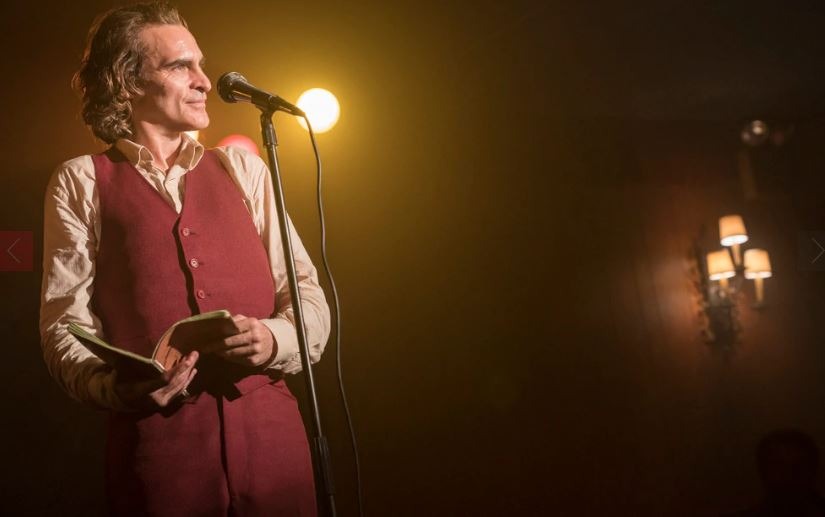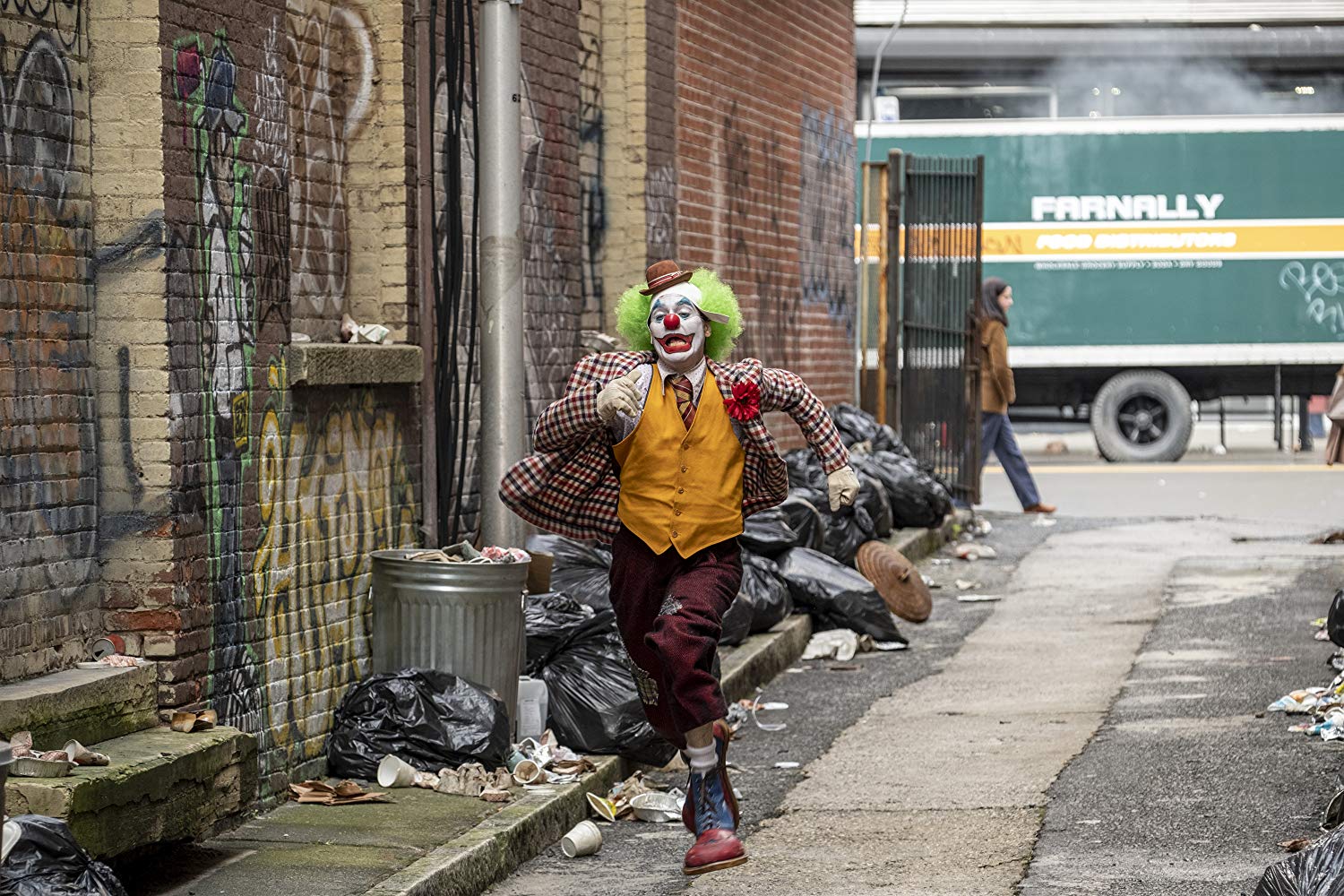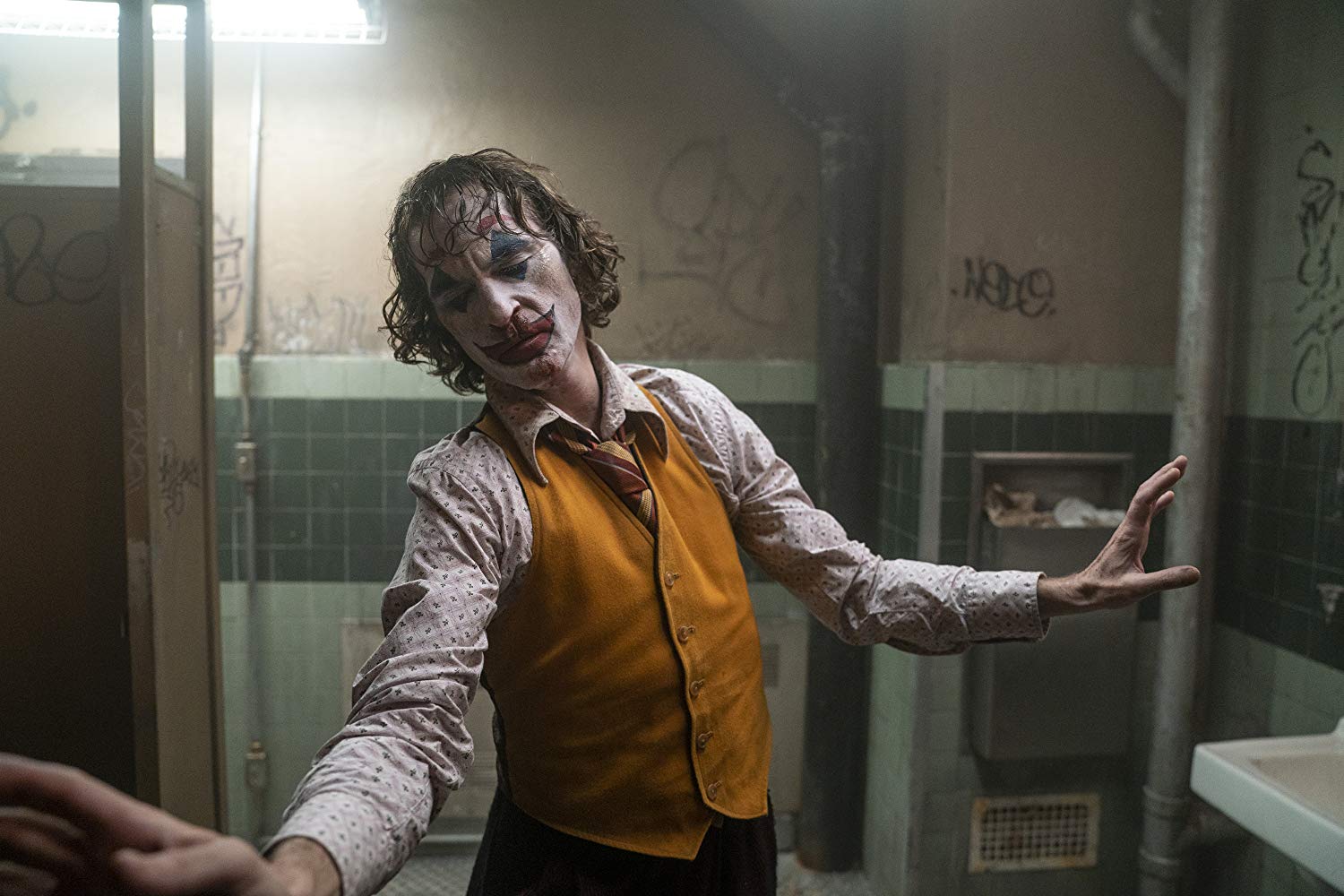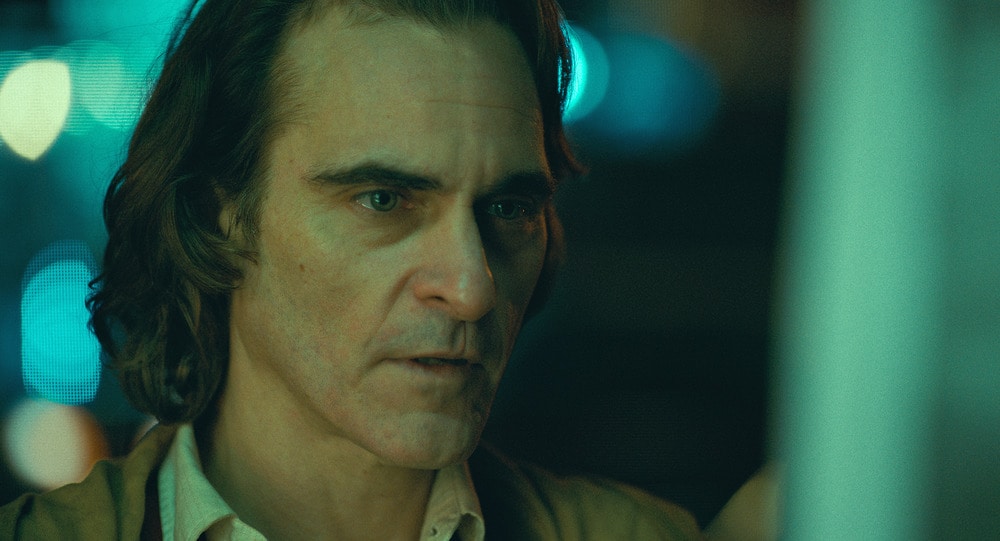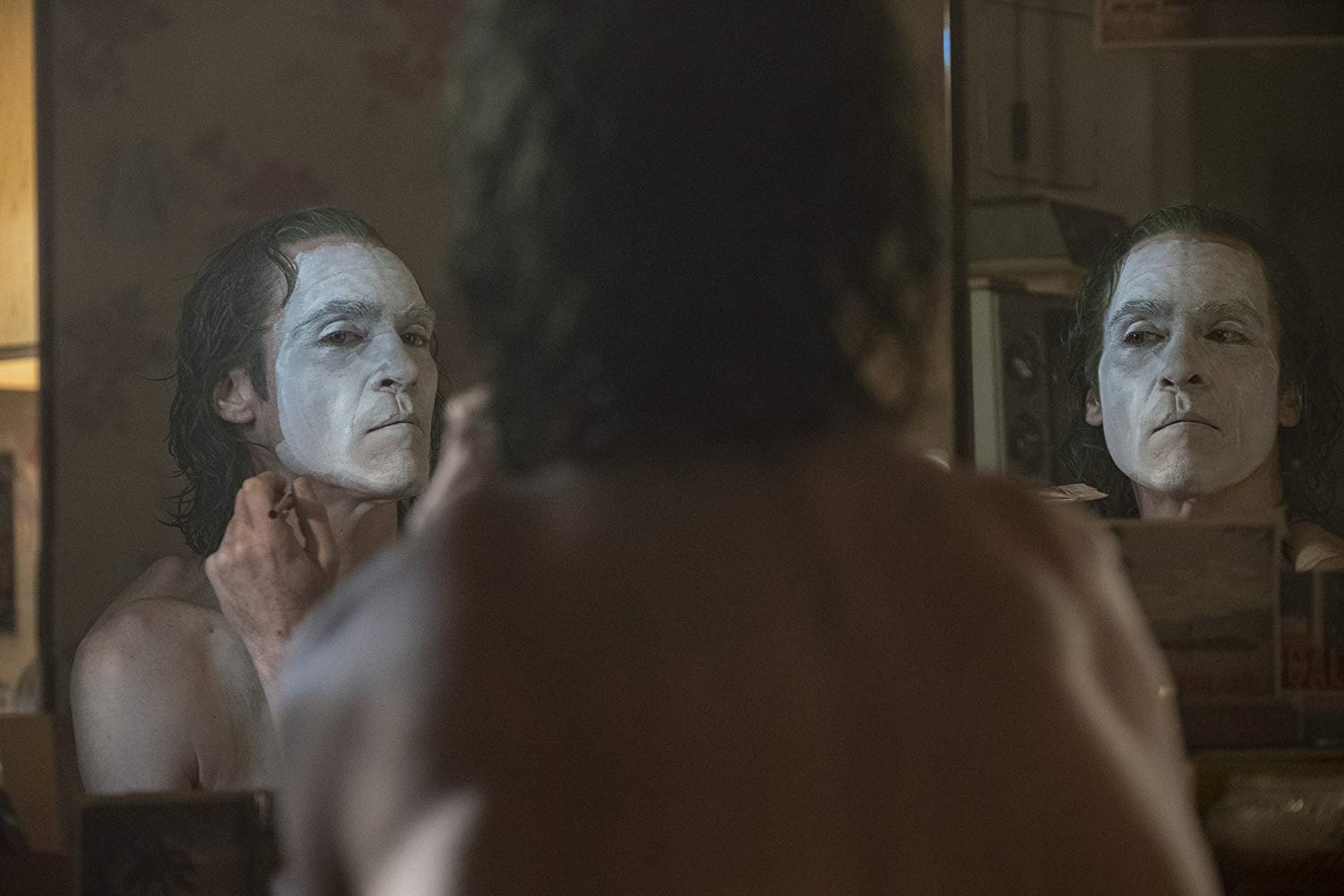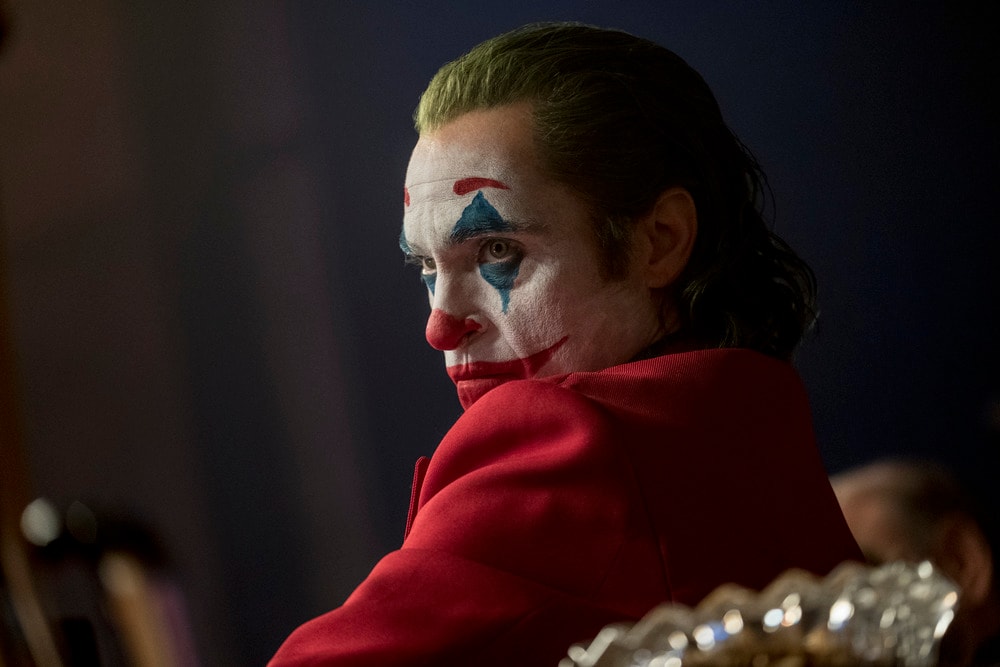Social Problems Behind the Crazy Smile
Joker – the new movie of Todd Phillips, director of The Hangover Trilogy – has generated enormous media coverage. Most critics refer to it as the film of the decade, and one has to admit that it is with good reason. It has already won the Golden Lion for best film at the Venice Film Festival, which is considered to be the best omen for the Oscars, and there are many film experts who can already see the golden Oscar statue in Joaquin Phoenix’s hands. Indeed, his performance in this film is simply mesmerizing. He lost three and a half stone (52lbs) for the role and practiced the nervous laughter of the main character for weeks. One could even say that he carries the film on his shoulders with this performance, while the screenplay and everything else is just an added bonus. But let’s leave it to others to decide whether the movie and Phoenix deserve the Oscar; the fact remains that Joker is a film that cannot go unnoticed.
So, we sit in the darkness of the movie theatre, expecting with a chilling spine the atrocities committed by another supervillain, all the stuff to which we have become accustomed from the Joker characters seen thus far. This film, however, does not justify the evil. The previous Joker characters already had the madness in them, but without any reality. For Jack Nicholson’s Joker, a tank of acid was enough to become the Clown Prince of Crime, while the character portrayed by Heath Ledger was completely elusive, and his madness consisted in this very fact that we did not know where he comes from and where he is going. By contrast, Joaquin Phoenix’s Joker has an extremely accurately detailed psychological basis, with authentic human depths, turning this film into a deep psychological drama.
Anyone looking for some light entertainment should avoid this film, as its message is quite hard to process. We laugh, of course, but it is a hysterical laughter. The film is set in the 1980s, and although its setting is the imaginary, godless town of Gotham, it could not be more similar to our current society, wherever we may live, while at the same time spookily evoking the New York of the Taxi Driver. There is loneliness, alienation, crime and huge differences between the social classes. It is in such a world that Arthur Fleck tries to earn a living as an entertaining clown, for himself and for his sick mother. Meanwhile, he struggles with a seizure-like, nervous laughter; when everyone else falls silent, he starts to laugh uncontrollably, further complicating his already difficult day-to-day life. The plot unfolds slowly, allowing us time to develop empathy for Fleck, while creating around the Joker’s character a context that is uncomfortable for us as well, since it also touches upon contemporary problems. The stake of the film is to gradually reveal the inner world of a fallible, multiply abused and vulnerable human being, while also showing how he becomes a monster as a result. For how long can empathy be maintained? Where is the breaking point, after which we cannot identify with the character anymore? And are we able to take responsibility for all that happens to him? Because even if we did not create the current social problems, we are definitely contributing to them.
This is the point that reveals the absurdity of the entire issue: it is a Hollywood movie attempting to draw attention to the huge gap between social strata, while billions of dollars are spent for nothing daily in Hollywood, and there is enormous difference between the elite’s and the average person’s income, thereby maintaining the gap.
Society creates strata within itself, with chasms between them, while the transition between extreme poverty and the world of the super-rich is practically excluded. The film draws attention to the possibility of the revolt of the oppressed, with repressed energies bubbling all at once to the surface. Thus, along with the overwhelming success, the movie also elicits fear, which is perhaps best reflected by the fact that there was police presence at the screenings in New York, and the screening was once stopped because of a man who loudly cheered and clapped at each murder scene, provoking panic in the viewers. These increased security measures and the public sentiment surrounding the film are also due to the 2012 Colorado shooting, during which, at the midnight screening of The Dark Knight Rises, 12 people were murdered and 71 injured. Joker, however, seems to help process the accumulated tensions instead of building up new ones to be feared.
The neo-noir stylization, the well-chosen soundtrack, the long-held images showing Phoenix’s face are all perfectly dosed, as if the film was based on a good recipe. This recipe, however, is not from the cookbook of Marvel’s and DC’s usual superhero movies, but rather based on the traditions of the Taxi Driver and The King of Comedy. This choice is no accident, since the original producer was none other than Martin Scorsese, who has left the project because of his work on The Irishman and due to its upcoming premiere. From this perspective, it is also no coincidence that Robert De Niro plays one of the most important supporting roles, that of a TV presenter, killed by Joker during a live broadcast, which can also be interpreted as a showdown with the one-time Travis Bickle, whose place is now taken by Arthur Fleck. Thus, this is not just about using the Taxi Driver and The King of Comedy as a source of inspiration, but perhaps also about a generational change. The one thing that was too much for me was the closing scene – with all due understanding for the neo-noir style, the images showing the outbreak of the riots were so strong that I couldn’t help but think that it is the perfect closure for such a story. However, as an encore, we get an image bathed in light, with a mad Joker who has broken lose.
It is always possible to disagree with all this, but it is certain that this film does not leave anyone cold and its viewers will return home with lots to think about.
Translated by Lóránd Rigán
Photo: Warner Bros.
Ha tetszik, amit csinálunk, kérünk, szállj be a finanszírozásunkba, akár csak havi pár euróval!

